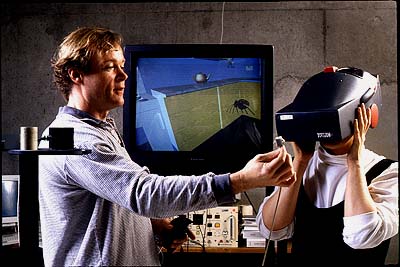Note to self- it can be dangerous to wonder what David Cronenberg was thinking.
Overall I found the book to be dated, repetitive and sophomoric, and not nearly as hot or disturbing as I expected from a quasi-legendary book of underground erotica. Thankfully it was short, 'cause if I read either of Ballard's favorite words ("glans" and "pubis") one more time I was gonna crash my foot into the book's spine.
After CRASH, I doubt I'll ever read Ballard's EMPIRE OF THE SUN which Spielberg adapted in 1987 (unless I hear good things about it from you of course).
The good news is that the book was chock full of dog-earable words that I'm excited to finally look up, not to mention a turn of phrase or two that aroused my literary side.
p22. "It was not the sexuality of the posture that stayed in my mind, but the stylization of the terrible events that had involved us..."
p39. "At times I had even speculated on the kind of traffic accident in which I would die."*
* I included this quote because it reminded me that during my first stint in Los Angeles (1995-2001) I had a premonition that I would eventually be killed on one of the city's many highways. Thankfully I haven't felt that same foreboding this time around.
p41. buccal |ˈbəkəl| |ˌbəkəl| |ˌbʌk(ə)l|
adjective / technical
of or relating to the mouth : the buccal cavity.
• of or relating to the cheek : the buccal side of the molars.
ORIGIN early 19th cent.: from Latin bucca ‘cheek’ + -al.
p42. "Listening in a bored way, the women patients lay in their beds. Two of them were suspended with their legs in traction, as if involved in the fantasies of a demented gymnast."
p50. autogeddon. I assume this word was the creation of the author... it bugged me every time I read it. As far as neologisms go, though, it's pretty weak salsa.
p54. penumbra |peˈnəmbrə| |pəˌnəmbrə| |pɪˌnʌmbrə|
noun
the partially shaded outer region of the shadow cast by an opaque object.
• Astronomy the shadow cast by the earth or moon over an area experiencing a partial eclipse.
• Astronomy the less dark outer part of a sunspot, surrounding the dark core.
• any area of partial shade.
p57. vitrified > vitrify |ˈvitrəˌfī| |ˌvɪtrəˈfaɪ| |ˌvɪtrɪfʌɪ|
verb ( -fies, -fied) [ trans. ] (often be vitrified)
convert (something) into glass or a glasslike substance, typically by exposure to heat.
p65. invigliator > invigilate |inˈvijəˌlāt| |1nˌvɪdʒəˈleɪt| |ɪnˌvɪdʒɪleɪt|
verb [ intrans. ] Brit.
supervise candidates during an examination.
DERIVATIVES
invigilation |-ˌvijəˈlā sh ən| |1nˈvɪdʒəˌleɪʃən| |-ˌleɪʃ(ə)n| noun
invigilator |-ˌlātər| |1nˌvɪdʒəˈleɪdər| noun
p77. "A week after the inquest she was waiting at the taxi rank of the Oceanic* Terminal as I drove away from Catherine's office."
* LOST fans will enjoy the name of Ballard's fictitious airline.
p99. treadle |ˈtredl| |ˌtrɛdl| |ˌtrɛd(ə)l|
noun
a lever worked by the foot that imparts motion to a machine.
• any of a row of metal spikes set on an angle on a spring within a plate laid across the entrance or exit of a parking facility, used to prevent drivers from using the facility without paying.
p144. sulcus |ˈsəlkəs| |ˌsəlkəs| |ˌsʌlkəs|
noun / Anatomy
a groove or furrow, esp. one on the surface of the brain.
p148. anneal |əˈnēl| |əˌni(ə)l| |əˌniːl|
verb [ trans. ]
heat (metal or glass) and allow it to cool slowly, in order to remove internal stresses and toughen it.
• Biochemistry recombine (DNA) in the double-stranded form following separation by heat.
p151. columbarium |ˌkäləmˈbe(ə)rēəm| |ˈkɑləmˌbɛriəm| |ˈkɒl(ə)mˌbɛːrɪəm|
noun ( pl. -baria |-ˈbe(ə)rēə| |ˈkɑləmˌbɛriə|)
a room or building with niches for funeral urns to be stored.
• a niche to hold a funeral urn.
• a stone wall or walk within a garden for burial of funeral urns, esp. attached to a church.
ORIGIN mid 18th cent.: from Latin, literally ‘pigeon house’ .
p177. invagination |inˌvajəˈnā sh ən| |1nˈvødʒəˌneɪʃən| |ɪnˈvadʒɪˌneɪʃ(ə)n|
noun chiefly Anatomy Biology
the action or process of being turned inside out or folded back on itself to form a cavity or pouch.
• a cavity or pouch so formed.
p205. hypogeum |ˌhīpəˈjēəm| |ˈhaɪpəˌdʒiəm| |ˈhʌɪpə(ʊ)ˌdʒiːəm|
noun ( pl. -gea |-ˈjēə| |ˈhaɪpəˌdʒiə| |-ˌdʒiːə|)
an underground chamber.
ORIGIN mid 17th cent.: from Latin, from Greek hupogeion, neuter of hupogeios ‘underground.’





















